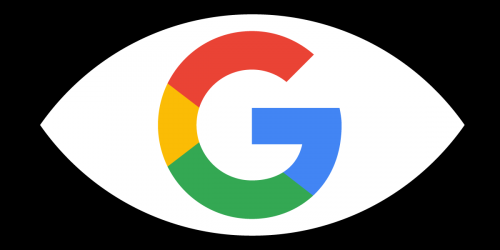Earlier this month, Georgetown Law Professor Alvaro Bedoya delivered the U.S. Senator Dennis Chavez Memorial Lecture in Law & Civil Rights at The University of New Mexico School of Law, titled “Privacy and Civil Rights in the Age of Facebook, ICE, and the NSA.” His remarks neatly encapsulated many of the reasons why we at EFF work to challenge state surveillance. Put simply, privacy is a public value that enables freedom of expression. Without it, our democracy stands at risk, as do communities that have long confronted bias and discrimination.
Professor Bedoya’s comments trace the historical arc of the resistance to the McCarthy era in Congress, which he suggests started with the support of free speech shown by Senator Dennis Chavez (D-NM) in the face of McCarthy’s crackdown on freedom of expression. The very first U.S.-born Latino member of the Senate, Chavez argued in defense of dissent and challenged McCarthy at a crucial time when others were unwilling.
Professor Bedoya goes on to examine how surveillance offends not only privacy, but also other important social values, including dissent. He asks:
Who hears the word “privacy” and thinks about equality? Who hears the word “surveillance” and thinks about racism or bigotry or intolerance? Not many. Nowadays, the motto is that “everyone is watched.”
But at its heart, privacy is about human dignity: Whether the government feels it can invade your dignity, and whether the government feels it has to protect the most sensitive, most intimate facts of your life.
And invasions of privacy -- the watching and tracking and sharing of data -- those invasions do not affect everyone equally…. Yes, privacy is a civil liberty. I am here to tell you that privacy is also a civil right.
[W]hen we talk about privacy only as a civil liberty, we also ignore the benefits of privacy: Surveillance threatens vulnerable people fighting for equality. Privacy is what protects them and makes it possible.
Bedoya, in conversation with EFF’s executive director Cindy Cohn, explored many of the same themes in the pages of a McSweeney’s volume that we helped create called “The End of Trust.” As part of a wide-ranging conversation about mass surveillance and civil rights, Bedoya noted:
I think that "I have nothing to hide" is another way of saying, "I have privilege," or "I'm a relatively powerful person who is from the right side of the tracks, who has political opinions that aren’t considered radical, who has the luxury of being the right gender and sexual orientation." We need to stop talking about privacy as this vague, undefined thing. We need to recognize that it is a shield for the vulnerable.
Bedoya’s perspective also reflects EFF’s view, which we have explained in several settings that illustrate the intersections between civil liberties and civil rights.
Just a few weeks ago, on the anniversary of several seminal Supreme Court decisions protecting free speech, we wrote about how the historical origins of those cases closely implicated civil rights struggles. Put simply, our modern free speech judicial decisions arose directly from, and ultimately protected and promoted, the civil rights movement.
The connection between free speech and civil rights is not merely historical, however. Just as during the COINTELPRO era, law enforcement and private contractors today use surveillance to intimidate, divide, and “neutralize” domestic social movements. Activists, protestors and others increasingly have to navigate a world where police departments across the U.S. deploy sophisticated surveillance technology—including tools originally developed for military application—in civilian streets. From Automated License Plate Reader devices to tools that spy on cell phone voice and data networks, surveillance technologies are disproportionately used towards communities already at risk of law enforcement abuses.
EFF has taken action to defend free speech where it stands most threatened: at sites where disenfranchised communities are directly confronting state power. We have worked across the U.S. to support local laws requiring civilian oversight of local police surveillance. We also deployed investigators to Standing Rock in 2016 to attempt to document the presence of surveillance devices. While our efforts to document secret government surveillance there were inconclusive, we remain committed to defending the right to free expression for dissidents.
Beyond the U.S., these issues also emerge far and wide in international contexts. In the Middle East and North Africa, EFF has long supported bloggers, journalists, and technologists who are taken offline by oppressive governments. Similar issues have emerged in other countries, from the Philippines to the United Kingdom.
Bedoya’s speech (and his other efforts including the Color of Surveillance conference) are key pieces of a growing effort to ensure that privacy and protection from surveillance are seen as part of defending civil rights. Challenging surveillance is a critical part of protecting marginalized communities and helping the voiceless regain their voices online.













